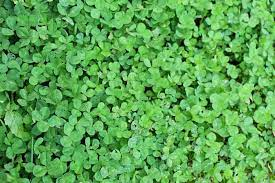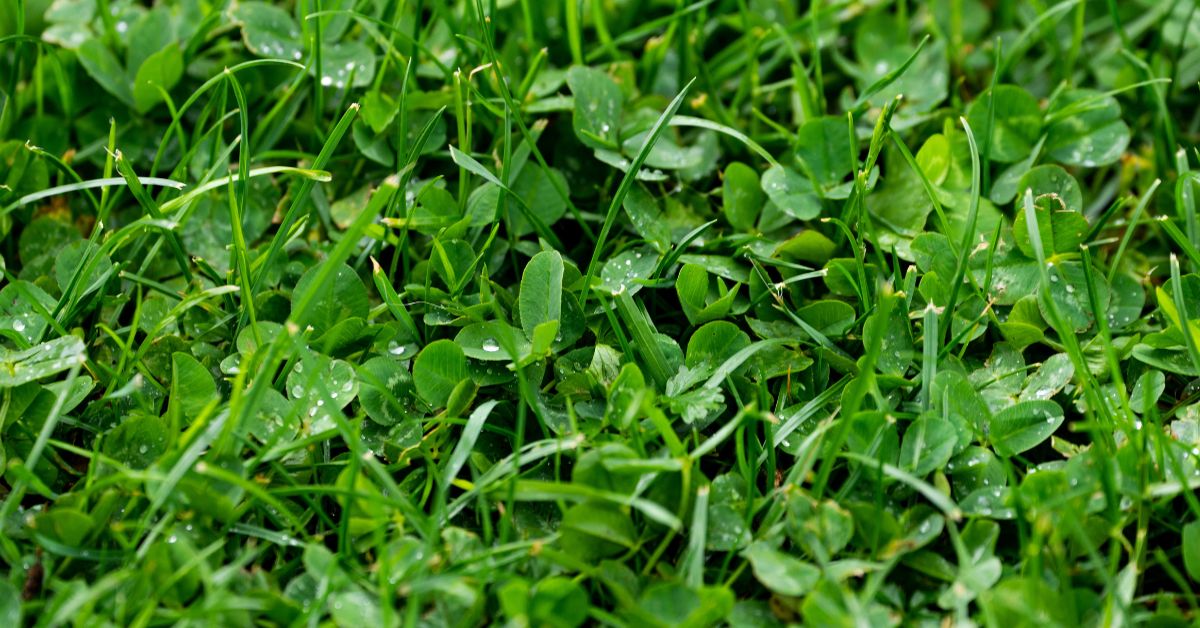
Some homeowners like clover on their lawns, but many others don’t. There are several ways to get rid of white clover in your yard if it grows in patches. The good news for those interested in going green is that harsh chemicals don’t have to be used. Clover in your lawn can be removed naturally in several ways.
Clover: What to Do to Get Rid of It
The following methods are effective for eliminating clover naturally:
Hand-pull it out
The clover can be manually removed in small patches. Remove the clover, roots, and all by gently loosening the soil with a spade. Clover will grow back if roots are left behind.
Oxygen and sunlight are deprived of it.
The best way to kill clover is to block it from all sources of oxygen and sunlight. Ensure you secure the corners of the plastic sheeting or garbage bag with rocks to prevent it from flying away. Hopefully, this will eliminate the clover within a few weeks. If grass gets underneath the plastic, this approach will also kill it.

A vinegar solution can be sprayed.
Use this natural home remedy to make your weed killer that is non-toxic.
- Add one drop of dish soap to one cup of vinegar and water.
- Spray it on clover patches after shaking it up. Using vinegar and dish soap, you can make sure the clover leaves are dried and stick to one another.
- It may take several weeks of spraying for the clover to be killed entirely. Be careful when spraying the vinegar solution on grass since vinegar can damage it.
Organic herbicides should be applied.
An organic herbicide called A.D.I.O.S. kills clover selectively without harming surrounding grass. It will weaken and kill clover simply by spraying it on it.
Why Does My Lawn Have Clover?
The soil in your lawn could cause clover to sprout up in your lawn for several reasons.
- The soil has the wrong pH. For lawns, the ideal soil pH is between 6.0 and 7.0. If your lawn’s soil is too acidic, clover will flourish. The pH of your soil can be balanced with soil amendments such as lime.
- There is a lack of nitrogen in the atmosphere. When soil nitrogen levels are low, clover thrives. A clover plant can obtain nitrogen from the air, whereas grass needs nitrogen from the soil to grow. Too much fast-acting fertilizer may have depleted your soil of nitrogen. They can reduce soil quality. You can prevent this by switching to organic fertilizers such as manure and corn meal.
- Soil that is compacted. Your grass cannot get nutrients — including nitrogen — air and water if your soil is compacted. A spike aerator or core aerator can help break up compaction.
Conclusion
Clover grows well on some lawns but not on others. Your lawn will be less hospitable to clover if you use organic, slow-release, nitrogen-rich fertilizer. Homeowners prefer conventional, fast-release fertilizers because they grow grass faster and are less expensive.

FAQs
Will clover choke out the grass?
You will choke out your grass plants if you let white clover grow unchecked every spring.
Is lime harmful to clover?
To reduce the clover population, you can make the soil less acidic with lime to promote the growth of turf grasses.
Is it a good idea to remove clover from my lawn?
When you see a clover, remove it immediately. Seeds and creeping stems can spread quickly. It is best to remove clover by hand if there is only a tiny amount on your lawn.


